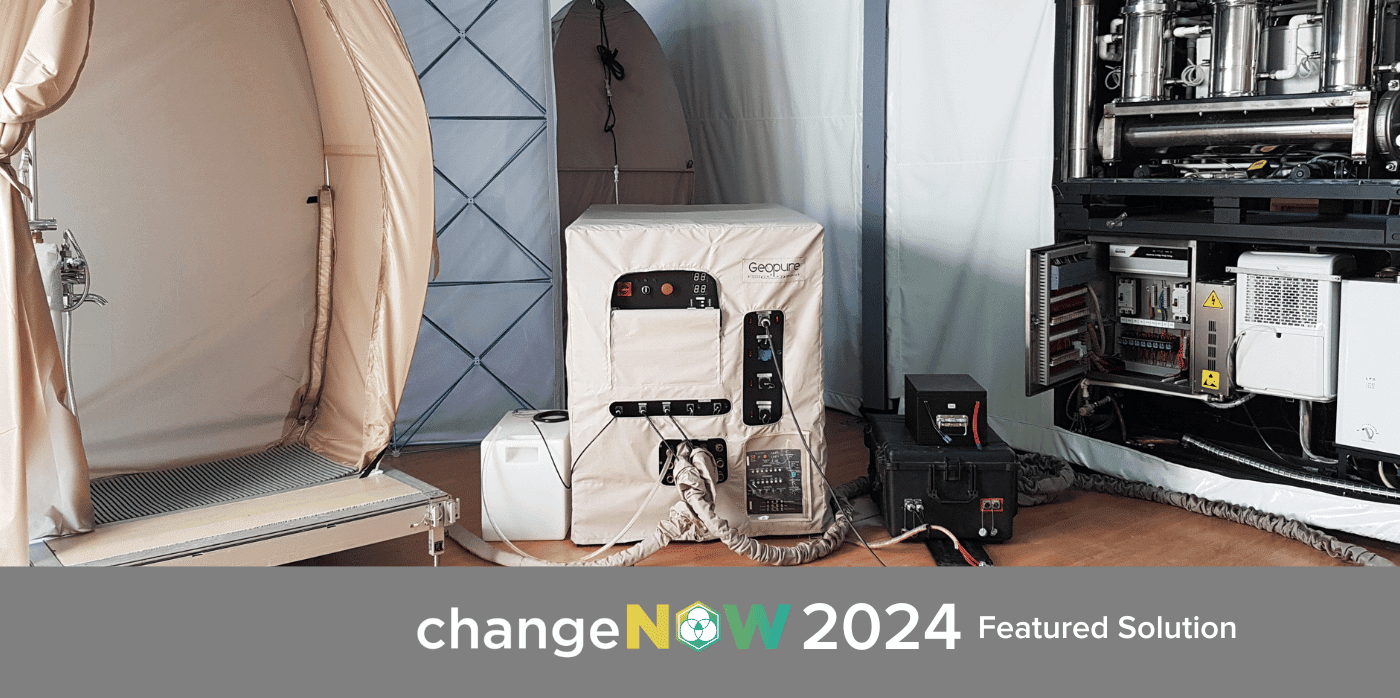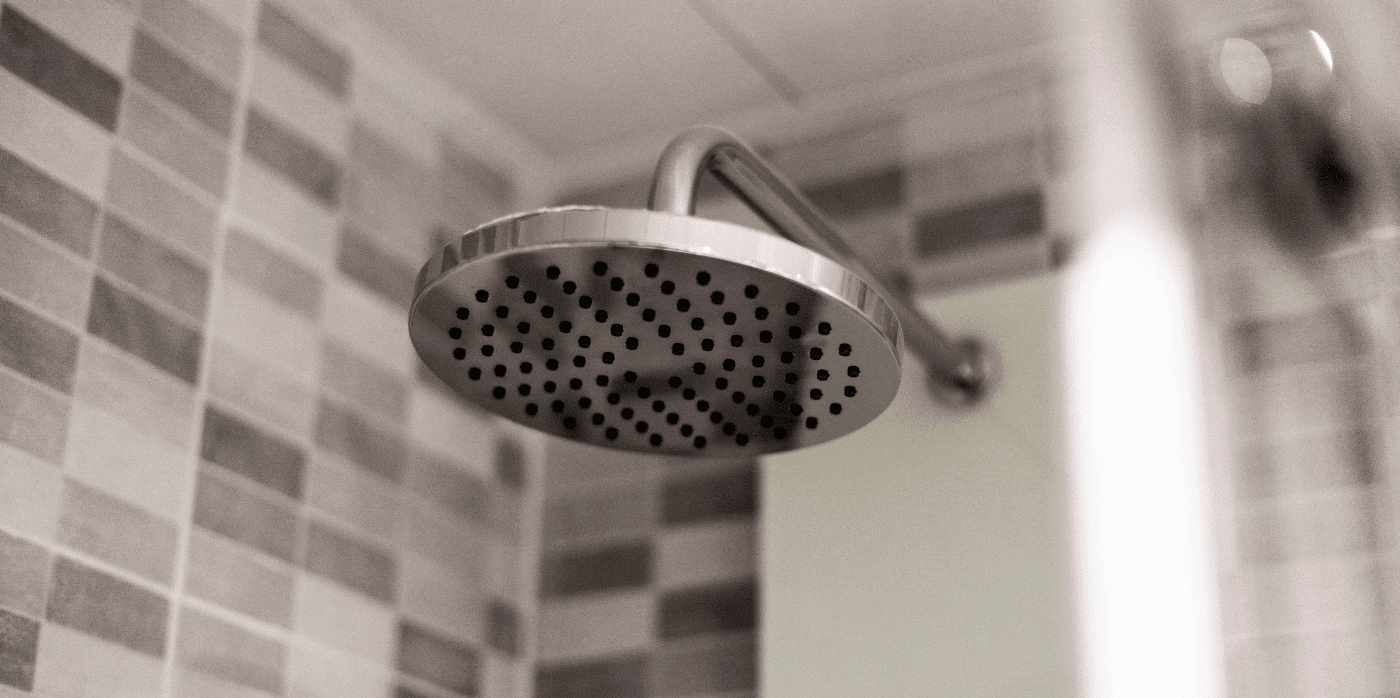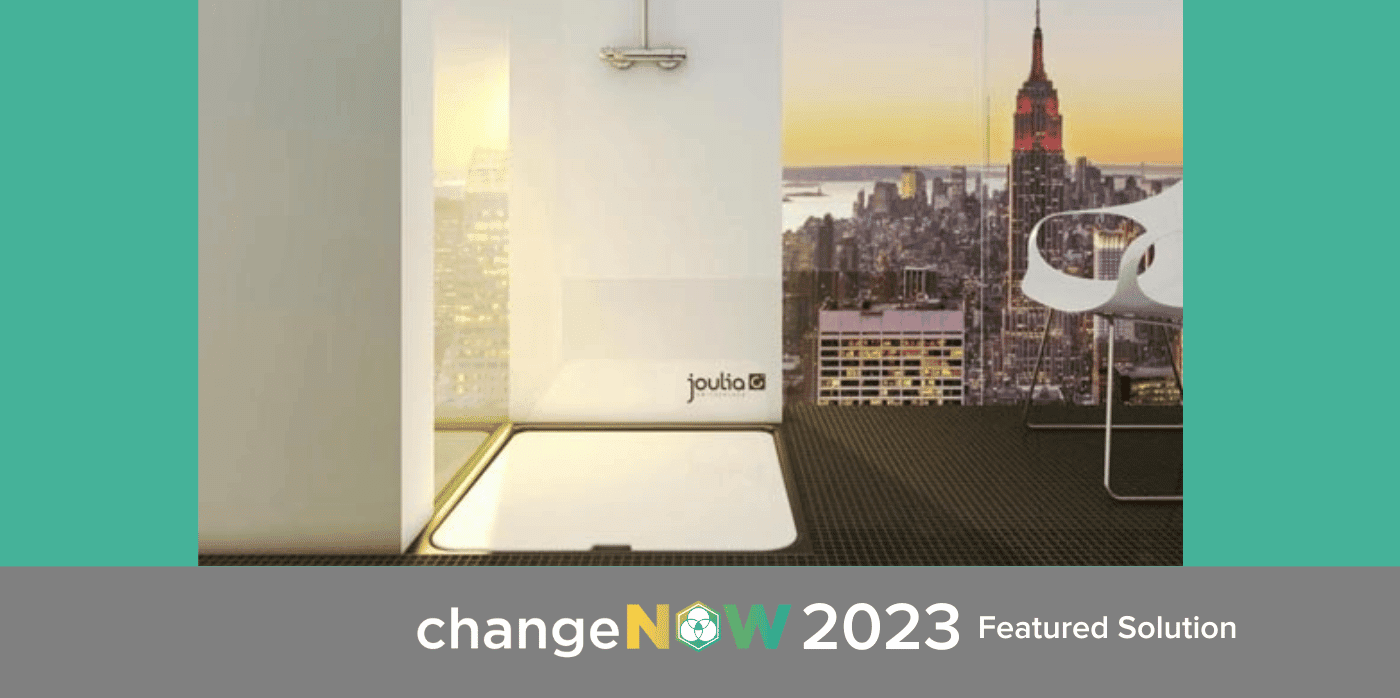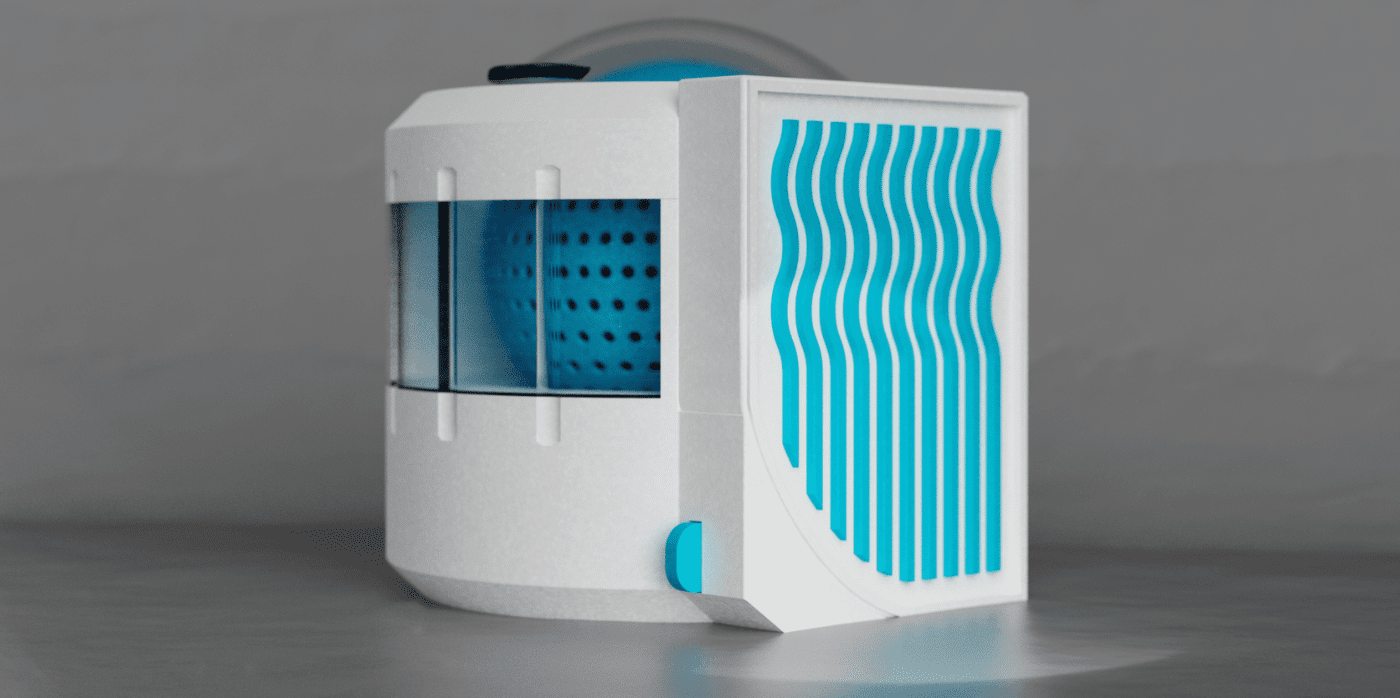Shower sustainably: a greywater recycling solution

Spotted: The World Economic Forum (WEF) calls the reuse of greywater – lightly used waste water – “one of the most promising avenues for water innovation.” One of the main challenges in increasing this reuse, though, is the highly energy-intensive process required to power the treatment processes and plants.
Renewable energy could be the solution that makes greywater recycling sustainable. French company Geopure designed a system that provides an endless loop of zero-waste, sustainable showers. The company’s WTS100 system was created particularly for organisations and communities living in remote areas or off-grid. The shower requires 100 litres of water from almost any source, including groundwater sources and rain.
Water drains directly from the shower and accompanying taps into the recycling system, to be purified immediately without using chemicals or generating emissions. Once the water has been disinfected and is ready for reuse, the system pumps the water back to the shower.
The WTS100 system is modular and portable, enabling custom sizes and bespoke layouts. Geopure’s systems are currently being used in locations that include an off-grid glamping camp in Australia and a self-sufficient cabin in Finland.
The UN Environment Programme calls wastewater “an invaluable resource” that could supply over 10 times the water currently provided by global desalination. Springwise’s library showcases a number of innovations seeking to make use of that resource, from beer to biomanufacturing feedstocks.
Written By: Keely Khoury






